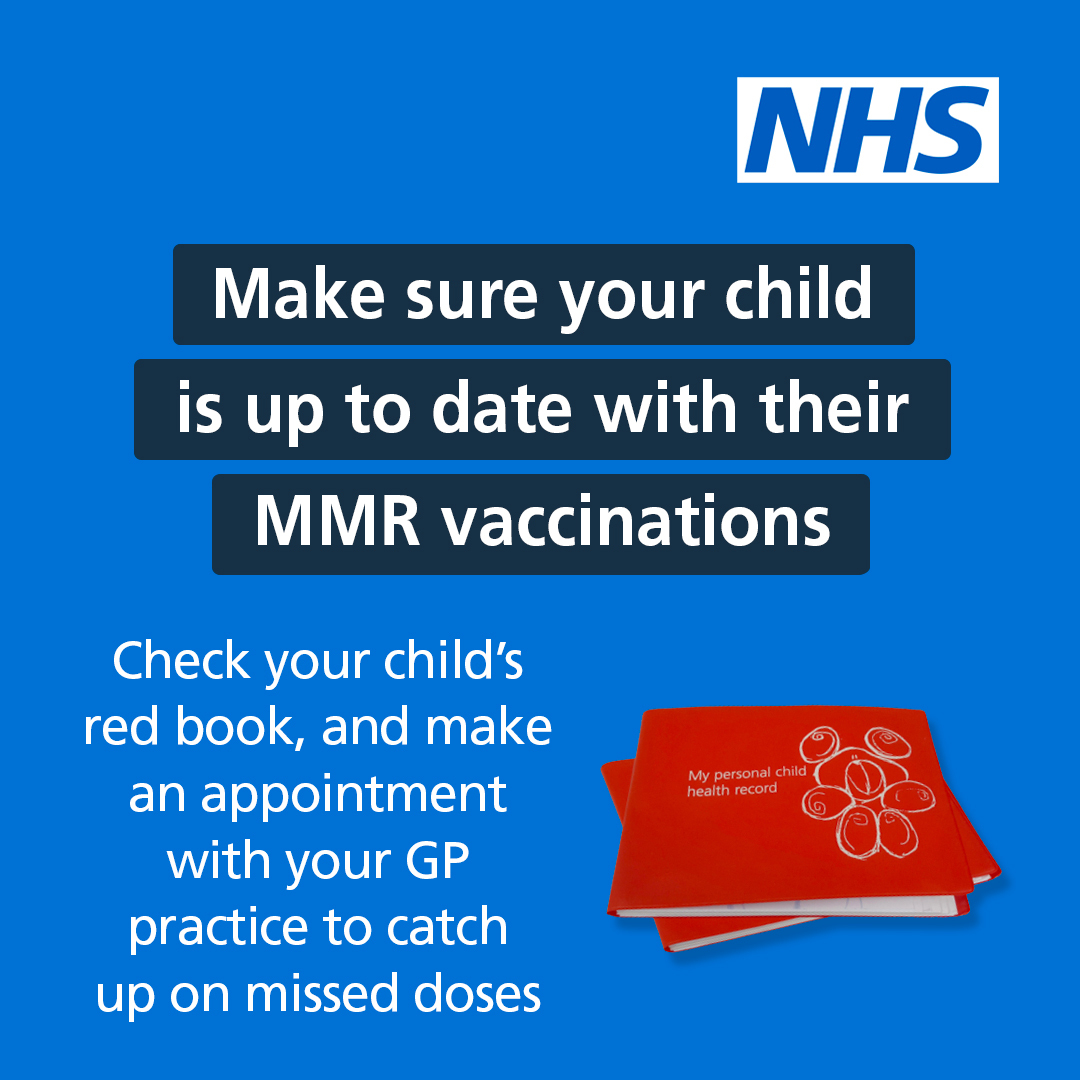Nottingham and Nottinghamshire ICB

The NHS is urging parents and carers to check their children have had the MMR vaccine as nationally there has been an increase in measles cases.
Measles is highly infectious and can cause serious problems including meningitis, hearing loss and problems during pregnancy.
That is why the NHS is asking parents and carers to check that their children are up-to-date and have had two doses of the Measles, Mumps and Rubella (MMR) vaccine.
The free MMR vaccine is a safe and effective way of protecting against measles, as well as mumps and rubella.
Dr Dave Briggs, Medical Director at NHS Nottingham and Nottinghamshire, said: “Measles is a very infectious virus and spreads very easily. People who catch measles usually recover completely within a couple of weeks, however it can cause long term health conditions such as pneumonia, meningitis, blindness and occasionally can cause death and this can effect children as well as adults.
“It’s important for parents to take up the offer of MMR vaccination for their children when offered at one year of age and as a pre-school booster at three years, four months of age. If children and young adults have missed these vaccinations in the past, it’s important to take up the vaccine now from GPs, particularly in light of the recent cases.”
If you think your child might be behind on their MMR or any other vaccination you can check your child’s health record (red book) or contact your GP to see if they are up to date. You can also request a vaccine without any pig products in it.
Most healthy adults will have developed some immunity to measles but it’s particularly important to check you’ve had both doses if you:
Anyone with symptoms is also being advised to stay at home and phone their GP or NHS 111 for advice. Measles symptoms to be aware of include:
For more information about the MMR vaccine and to see frequently asked questions, visit our MMR web pages.
